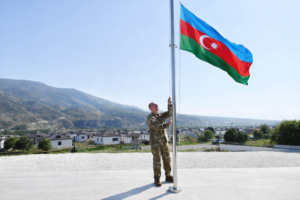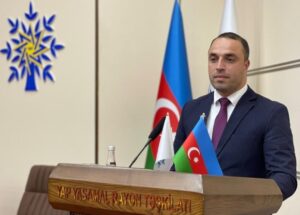Acting Like a Paranoid State

Can states act like a drunk man ? Examining the behaviour of India’s political elite after the May 2025 war, which is characterised by ideological intoxication, delusions of grandeur, loss of judgment, and a disregard for reality, the answer to this interesting metaphor is yes! The recent statements from the Indian defence minister Rajnath Singh claiming to change the history and geography of Pakistan, followed by the Army Chief Gen Upendra Dwivedi threat to erase Pakistan from the map of the world further substantiate this argument that India is high on its fear, ideology and hubris, and it cannot reconcile with the fact that they no longer mean the same to the world as they used to before the May 2025 war. It also highlights that on the night of 6/7th May, it was not just 7 aircraft that Pakistan Air Force (PAF) brought down ; it was the myth, illusions, hubris, and grandeur of India that was brought down, which India has not been able to digest.
This raises a question : Is India acting like a paranoid state, or is it just another political gimmick of the BJP to woo voters in the upcoming Bihar elections ? India’s current trajectory in conducting its foreign affairs indicates the behaviour of a paranoid state. India mounted a global campaign to isolate Pakistan, and Prime Minister Modi, in 2016, while delivering a speech in Kozhikode, vowed that “We will intensify it (our efforts) and force you to be alone all over the world.” As luck would have it, India found itself diplomatically isolated after the May 2025 war, not in one odd event but in a series of important global events. The US tilt towards Pakistan was the last nail in the coffin for India’s grand ambitions to become the Indian Ocean region’s net security provider. The dent of such a magnitude would push any state towards paranoia.
In this paranoia, India resorted to an aggressive rhetoric and a siege mentality. Indian civilian and military leadership is making tall claims and pointing towards Operation Sindoor 2.0 reflects the psychology of the state that seeks revanchism, as it desires to reverse losses and restore former glory. But this status anxiety that India is suffering has caused cognitive dissonance among India’s political and military leadership, as they cannot understand the basic fact which is written on the wall, that they have lost air superiority to Pakistan for many years ahead thanks to ACM Babar Sidhu, and this restricts India’s ability to even engage with Pakistan even in short and swift skirmishes.
For military strategists, a shared lesson from the recent conflicts—whether between Russia and Ukraine, Israel and Iran, or Pakistan and India—is unmistakable : securing control of the airspace is essential to gaining the upper hand on the ground. Indian political and military elite would only act in paranoia if they believe that the Indian Air Force (IAF) with its current wherewithal stands a chance against the PAF. This superiority cannot come in a short time ; it requires years of training and technology integration. For identity repair, India needs to take another path, which it is not taking, as its current behaviour is driven by irrationalism and denial.
India lost its image as a potent military power, but with the desperation to restore its lost prestige, it is now losing its soft image as well. As it further took a downward trajectory with its decision to engage with the Afghan Taliban in a way unimaginable to many observers in India and around the globe, to break out of its limited strategic and diplomatic options without realising the cost it would have to pay. Afghan Taliban, who are looking for the perception of legitimacy, have conveniently dented India’s image, which believes, in its paranoia, that the Taliban are key to its encirclement policy against Pakistan. Considering that Afghanistan have resorted to hot conflict with Pakistan, which the Indians may celebrate for the time being, but they will find themself on the wrong side of history in the near future.
For Pakistan, India’s paranoia has inadvertently opened up new space for diplomatic engagement with the wider world. India has taken a position that now makes Pakistan’s narrative more credible and acceptable in Western capitals. Moreover, this deadly cross-border exchange between Pakistan and Afghanistan made one thing clear that the Taliban do not hold any emotionalism of Muslim brotherhood towards Pakistan. This factor must guide Pakistan’s future engagement with Afghanistan, who, like India, in their paranoia, want to play the game of fire and blood with Pakistan.


